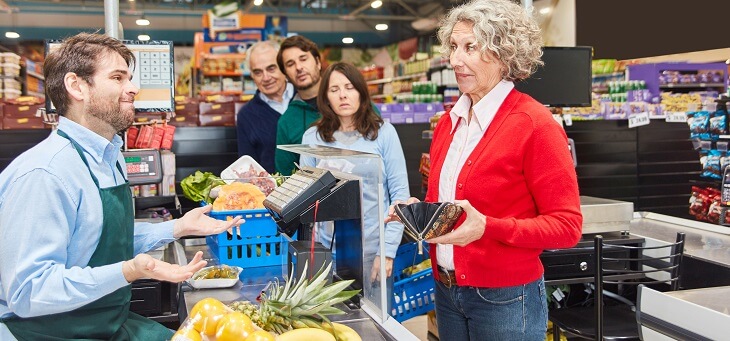With the pandemic well into its third year, the events of 2022 have created what some have described as the ‘perfect storm’, heaping financial pressure on ordinary Australians at levels never seen before.
Research released by comparison website Finder shows that nearly one in five Australians has had to either abandon purchases at the checkout or return items to the shelf, with the impact of the financial squeeze resulting in a decline in transactions.
Sarah Megginson, senior editor of money at Finder, outlined the elements of the ‘perfect storm’. “Soaring food costs, high energy bills and rising interest rates and rents are the three key areas that are hurting households the most right now,” she says.
Read: Want to save money on groceries? Here’s a little secret
These factors have combined to put the brakes on grocery spending at a level not seen before. According to Finder’s research, ‘grocery bill stress’ hit a record high in August, with 37 per cent of Australians ranking groceries as one of their top three most stressful expenses.
This is up from 28 per cent in March, which in itself was a record, outstripping the previous highest figure of 24 per cent registered in June last year.
“So many people are scraping the bottom of the barrel right now,” says Ms Megginson. “It’s really distressing to be in a position where you can’t afford your groceries or fuel. Australians are being left embarrassed at the checkout as increases to household bills means there’s just not much money left in the bank.”
Read: Wage increases not to blame for inflation – report
Ms Megginson urges those who are struggling to adopt measures to help ease the strain, including switching utilities if a cheaper option is available, and refinancing a home loan.
Other options are also available, she says.
“If you’re really struggling to make ends meet, contact your bill providers and ask them about their hardship policies or payment plans. They can work with you to alleviate some stress and get on the front foot.”
Those experiencing hardship can also use the opportunity to examine their spending habits and perhaps make improvements. Understanding those habits can be a good first step. For instance, do you make a shopping list, and do you stick to it?
Read: Seven tips to help Aussies feeling the sting of rising inflation
Another ‘trick of the trade’ recommended by many is to shop soon after eating, because shopping on an empty stomach has been shown to increase the likelihood of purchasing high calorie foods.
Planning meals in advance can help reduce wastage and spending, as can keeping track of when items are on special. As reported by YourLifeChoices in June, many grocery items are placed on special cyclically, and taking advantage of this can reduce costs significantly.
Phone apps that help you track your expenses are also available.
With interest rates set to rise further, and inflation unlikely to fall in the next couple of years, using such an app in conjunction with the aforementioned tips could help many ease financial pain.
Have you been forced to change your spending habits? Do you have some tips for saving on groceries? Why not share your experience and thoughts in the comments section below?
If you enjoy our content, don’t keep it to yourself. Share our free eNews with your friends and encourage them to sign up.

